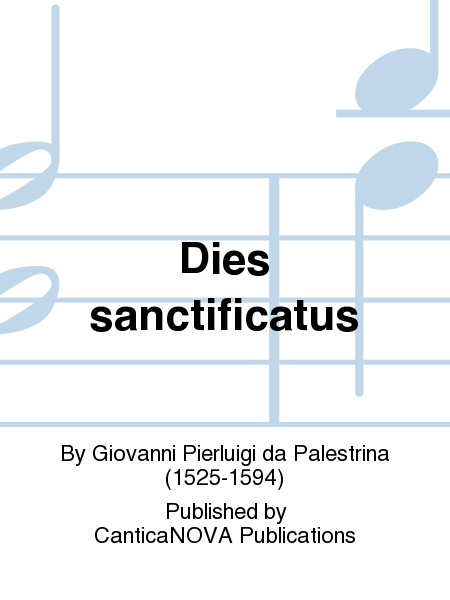Dies sanctificatus
-
Ships in 2 to 3 weeks
Details
Description
SKU: C5.7038
Composed by Giovanni Pierluigi da Palestrina. Edited by Mark Siebert. Text: Graduale Romanum. Renaissance treasure. Christmas. Octavo. Published by CanticaNOVA Publications (C5.7038).The brilliant career in Rome of Renaissance composer, Giovanni Pierluigi da Palestrina, gained him the title "Savior of Church Music." He is credited with a spiritual reform of liturgical music, helping to purge secular influences and return church music to a holy and inspirational state. His motet, Dies sanctificatus, is a setting of the Alleluia verse text for Christmas Day. In superb contrapuntal style, the master uses points of imitation and subtle text painting: rising leaps on venite gentes ("come, nations") and corresponding descending leaps on descendit lux magna ("a great light has descended"). Mark Siebert has produced a clean, minimally-edited version of this Renaissance masterpiece for our Treasure of Sacred Music collection. He has indicated clearly where performance practice requires musica ficta, the altering of some notes for proper harmonic relationships. These are done in a scholarly way that does not detract from the simplicity of the choral score. Here is the beautiful text, drawn directly from the Liturgy, in its Latin form, and in an English translation: "Dies sanctificatus illuxit nobis; venite gentes et adorate Dominum, quia hodie descendit lux magna in terris; h!c dies quam fecit Dominus. Exultemus et l!temur in ea." Transaltion: "A holy day has dawned for us; come, nations, and worship the Lord, for today a great light has descended to earth. This is the day the Lord has made; let us rejoice and be glad in it." This truly masterful motet is of medium difficulty and is perfect for any SATB choir to sing at Midnight Mass, on Christmas Day, or anytime during Christmastide.

 Share
Share